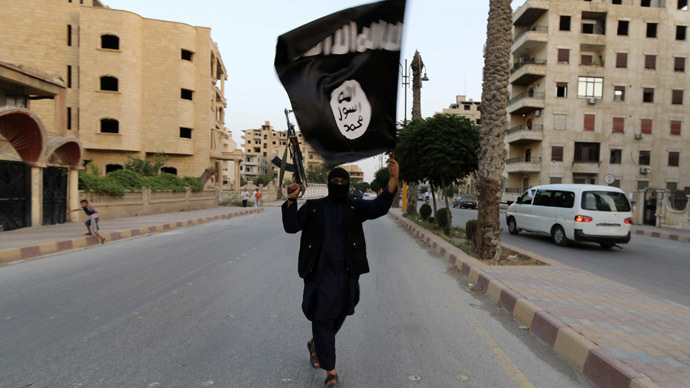CIA director blames social media for strength of ISIS

The internet has “greatly amplified” the Islamic State’s campaign of terrorism and has consequently stifled attempts to diminish the spread of the extremist group’s ideologies, the director of the Central Intelligence Agency says.
Speaking Friday at the Council on Foreign Relations, CIA Director John Brennan said the group calling itself the Islamic State (also known as ISIS or ISIL) has been so successful at staying intact and afloat largely because it has embraced new tools, such as social media, which enable it to achieve a transnational diffusion of ideas in real time over the web.
“What makes terrorism so difficult to fight is not just the ideology that fuels it, or the tactics that enable it. The power of modern communications also plays a role,” Brennan said. “New technologies can help groups like ISIL coordinate operations, attract new recruits, disseminate propaganda and inspire sympathizers across the globe to act in their name.”
Brennan described the group as both well-armed and well-financed in his prepared remarks and said that, if unchecked, it would “pose a serious danger not only to Syria and Iraq, but to the wider region and beyond, including the threat of attacks in the homelands of the United States and our partners.”
READ MORE: Right into enemy hands? ISIS shows off new weapons allegedly airdropped by US (VIDEO)
Yet while the United States has led a multi-nation military effort which has conducted around 2,800 airstrikes on the group in recent months, Brennan said that one of the major contributing factors with regards to keeping the group afloat has been its use of the internet.
“The overall threat of terrorism is greatly amplified by today’s interconnected world, where an incident in one corner of the globe can instantly spark a reaction thousands of miles away; and where a lone extremist can go online and learn how to carry out an attack without ever leaving home,” Brennan said.
“Indeed, for all its advantages, the Information Age brings with it an array of new challenges that have profound implications for CIA’s mission—implications that go beyond counterterrorism.”
According to a report released earlier this month, a 68-page 'ISIS Twitter Census' authored by J.M. Berger and Jonathon Morgan for the Brookings Institute, the group has indeed embraced social media with considerable results.
“Jihadists will exploit any kind of technology that will work to their advantage,” Berger, an expert on online extremism, told The New York Times last week. But the Islamic State, he said, “is much more successful than other groups.”
READ MORE: CNN insists ISIS lures women... with Nutella & kittens. For real
The Brookings report found that ISIS supporters opened at least 46,000 Twitter accounts during the last four months of 2014 – averaging around 1,000 followers a piece – and maintain an active presence on the web, notwithstanding attempts from the microblogging service to suspend accounts.
“Much of ISIS’s social media success can be attributed to a relatively small group of hyperactive users, numbering between 500 and 2,000 accounts, which tweet in concentrated bursts of high volume,” the authors determined. Elsewhere in the report, the researchers write that a spam and bot analysis undertaken of ISIS social media accounts suggested that 20 percent of all messages were created with automated software. With around one-fifth of all pro-ISIS accounts posted in English, however, the messages being spread en masse – fabricated or not – may have a very real impact with advancing the group.
On Wednesday, US Secretary of Defense Martin Dempsey told members of Congress that any victory against the Islamic State will be achieved not by the military, but rather through thwarting the group’s ability to so widely spread its ideals.
“We can harden the region against it militarily, but the ideology has to be defeated by those in the region,” Dempsey said.












